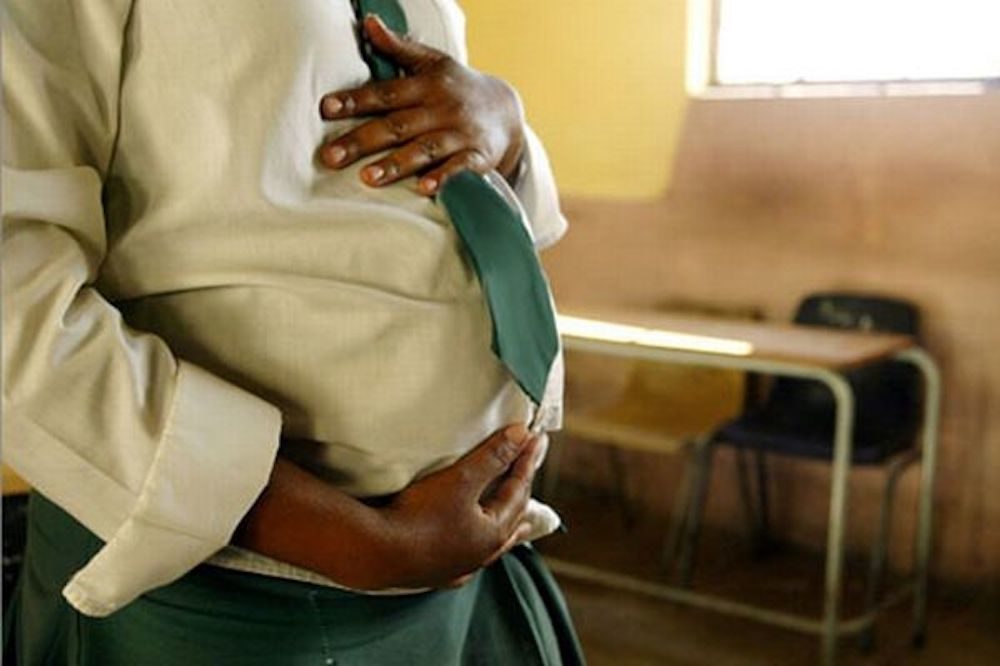Discrimination and stigma pushing pregnant teenage girls to suicide

A Bill by Nominated Senator Miraj Abdillahi seeks to compel national and county governments to protect teen parents
On February 23, 2020, a heavily pregnant Mwanaisha Juma (not her real name), who was only 14 years old then and in class eight, walked for about 10 kilometres to Kambe Forest in Kwale County, where she would normally go to fetch firewood.
But on this day, she was not going to get any firewood. Instead, she had planned to end her life by hanging herself in the forest.
More To Read
- Kwale County selected for UN-led gender-responsive blue economy programme
- 2025 Classic Safari Rally brings motorsport and economic boost to Kwale County
- Court rules Dutch national Elwin Ter Horst unfit to stand trial
- Gender CS Cheptumo calls for collective action against teenage pregnancies
- Kwale gears up for International Cycling Event, eyes tourism boost
- Teenage pregnancy key driver of preterm births in Africa, studies show
But luckily, forest rangers on patrol appeared just in time and prevented her from taking her life.
According to Mwanaisha, her life lost meaning when her 18-year-old boyfriend rejected her after learning that she was expecting his baby.
“It was my class teacher who noticed that something was wrong with me. She took me to a health centre where her suspicions were confirmed. It came as a shock to me because my boyfriend had convinced me that I would not get pregnant since I was still young,” she said.
She said the shocking news changed her life completely.
“My teacher called my mom and told her about it. My mother was shocked and disappointed in me. She had also become pregnant while still a teenager and she had hoped that her only daughter would not repeat the same mistake,” said Mwanaisha.
She narrated the stigma she went through after news of her pregnancy went out.
“I was discriminated against in school. Some teachers would tell other pupils not to associate with me saying I would be a bad influence to them. I was always given as a (bad) example; this made me so uncomfortable that I decided to drop out of school.”
Her predicaments did not end there as what followed her were judgmental stares everywhere she went.
“Some people would openly gossip and point at me. At the antenatal clinics, some health workers would intentionally give a mean comment to me. One time I was given a form to fill but when I asked for the meaning of a word, the health worker told me: ‘If you had paid attention to your studies you would not be here trying to understand things that are not of your age’,” she said.
Mwanaisha is not the only one facing the predicament of being pregnant while still young.
Rehema Chizi (also not her real name), said she was sent away by her guardian after she got pregnant while in class six and had to get married to the man who impregnated her as a second wife.
Even though she divorced him two years later and resumed her studies courtesy of the Vaarkart Foundation, she regrets having wasted her time.
She suffered at the hands of her lover to the point of attempting to end her life by overdosing herself with drugs.
“I tried to take my life several times but I was not successful. One time I took an overdose of medicine that I found at home, and on another occasion drank a detergent,” said Rehema.
Looking back, Rehema believes the reason she survived her suicide attempts was for her to help others in a similar situation.
“I wanted to finish school and become somebody who can positively change the life of a rural girl, but I slipped and got pregnant. In my case, I got involved with the man for financial assistance. I come from a poor family, my parents could not afford basics like sanitary towels and food,” she said.
Rehema said there should be more foundations to help girls, especially in rural areas.
“Some children are lured into sex as they seek to cater for their needs. You find it is that time of the month and a girl has no means of getting sanitary towels. Others are defiled and because some parents cannot stand the shame that comes with their teenage daughters being pregnant, they marry them off to the same person who has been unjust to them,” she said.
Mr Nicholas Oteku, the Coast programme director at Programme Against Malnutrition, said pregnant teenagers may experience fear, shame, guilt and isolation.
These emotional challenges, along with societal stigma, can lead to hopelessness and despair.
“Some teenagers may consider suicide as a way to escape from their difficult circumstances. They must have access to emotional support, counselling and resources to help them cope with these feelings,” he said.
Oteku said his organisation records up to five suicide attempt cases every month.
He said that to protect those rescued from suicide attempts from relapsing and trying it again, suicide prevention and post-attempt care require a multidisciplinary approach.
“Mental health professionals, social workers and support networks play a critical role. Treatment often includes therapy, counselling and support groups. Our focus in addressing the underlying issues always include building resilience and providing a safe and supportive environment,” said Oteku.
He said teenage mothers should get comprehensive counselling and support, including financial and referrals, to enable them to become self-sufficient and provide for their children.
“Programmes that offer parenting education and childcare assistance can also be valuable,” he said.
In August last year, Nominated Senator Miraj Abdillahi sponsored a special Bill in the Senate that seeks to protect pregnant children and child parents.
The Bill aims to ensure needy child parents and their caretakers receive assistance from the national and county governments for them to return to school after delivery.
Miraj argues that despite previous interventions to address the challenges pregnant children and child parents face, no significant results have been recorded.
If passed into law, the Bill will compel the national and county governments to establish programmes that will ensure teenage parents are protected and taken care of and also ensure pregnancies and dropping out of school by teenage parents are curbed.
Top Stories Today












































